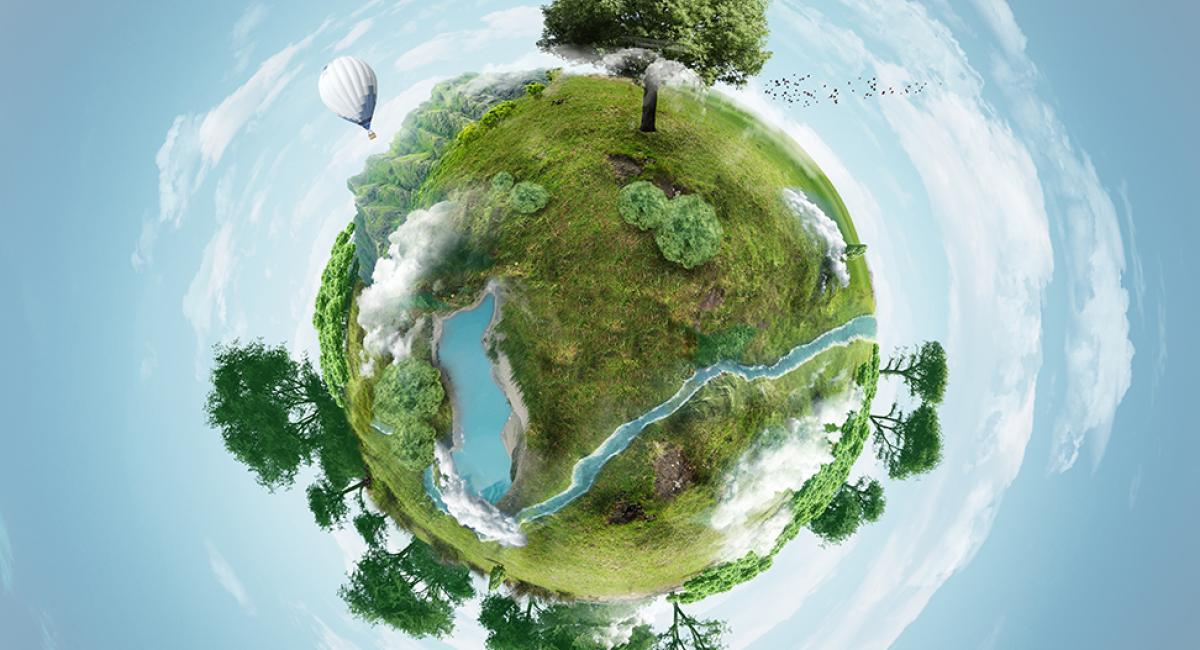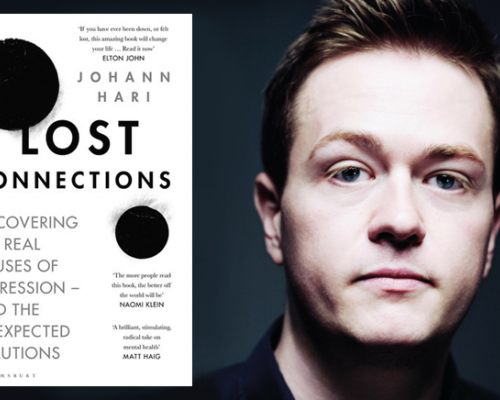Eco-anxiety: active solutions
Julia Welstead considers the connection between our mental health and our planet
Constant news and media coverage on climate change is increasing public anxiety about the state of our planet. Although environmental changes and mental health may not immediately seem connected, they very much are.
The first principle of any life form is that sustenance has to be procured from its surroundings, be that sunshine for grass, grass for zebras, or zebras for lions. Without ongoing nutrition and the right conditions (clean air and water, correct temperature etc) living things will fail to thrive and will die. This fact lies at the heart of the human givens approach whereby our essential human needs (requirements from our surroundings) can be met using our innate resources (our inbuilt attributes with which we can connect with our environment to gain those needs).
In short, without our surroundings providing us with everything we need in order to survive, we will die. It’s as simple as that.
Is it any wonder then, that we become anxious when our environment is not ideal, is changing in uncertain ways, or when we are made aware of potentially significantly harmful changes to our environment in the future?
To slightly misquote a comedian I recently heard on the radio: “If you aren’t anxious about the state of our planet, you haven’t been paying attention!”
Numerous thought-provoking articles and media discussions are now homing in on this rise in eco-anxiety, which people are describing as a source of anxiety that they “can’t quite locate” in which they feel “powerless” and that it supercedes other more everyday anxieties (such as body image, social and financial concerns) in that they feel it threatens their very survival.
As with all our emotions, feelings of anxiety serve a purpose – they alert us to the fact that something has changed and we need to act in some way in order to rectify the change and restabalise our surrounding conditions such that we can continue to survive, thrive and procreate. When people seek help for anxiety from an HG therapist, they will be helped to find the source of their anxiety – to locate it – and therefore work out what actions can be taken to change things in their lives for the better.
This is empowering because, rather than feeling unfocussed and powerless about our anxiety - lost and helpless in the amorphous cloud of it - we can break it down into manageable chunks, each of which can then be verified (or dismissed), addressed and overcome, and overall we can understand and master it.
As described in the HG book How to master anxiety the emotion of anxiety is a symptom of our fight:flight survival mechanism and the best response is action.
“Nothing diminishes anxiety faster than action.”Walter Anderson, American painter and writer (1903–1965)
In a situation, therefore, where the source of anxiety is news that our planet – our environment and the source of our survival needs – is suffering, it makes sense to focus on what we can do to help the planet to, in effect, get it’s needs met too.
Psychiatrist David Pollack makes this point, “If we are concerned about well-being and burnout in the health sector, we should be even more concerned about the risks to earth’s well-being and planetary burnout.”
We can use the human givens approach to look at this situation from both perspectives: how humans and other lifeforms can get their needs met in a changing world, and also what needs and resources our planet has, and how our actions are affecting the very system upon which we rely. We are in a relationship with our environment, and it’s a two way street.
But how can one person help in what seems such an enormous, insurmountable challenge? This feeling of being too small to make a difference is, I think, the source of our feelings of helplessness and powerlessness. And yet the opposite is true - unless each of us individually helps, we will be unable to make the global changes required to reinstate a harmonious balance of give and take with our planet. And in terms of our mental health, doing things that make a difference on a daily basis is what will also make us feel less helpless, more powerful, and therefore less anxious.
I can only speak for myself here, but personally I feel better when I do all the small things that might add up to making a big difference. We all know the list of these everyday changes - recycling packaging, using our own shopping bags, buying locally produced food and minimising wastage, not using nasty chemical cleaning products, not buying more “stuff” than we need, mending rather than chucking things, cycling rather than driving, and so on. For others the actions that will reduce their anxiety might include anything and everything from lobbying politicians to make local and national changes, undertaking scientific research, designing reusable products, to joining community activities such as clearing plastic rubbish from beaches.
Whatever we do, the “doing” is what makes us feel better, more engaged, more in control of our situation. In terms of our essential emotional needs this plays to our need for volition and a sense of achievement, meaning and purpose. And for our planet, every plastic bag not used and discarded, every food mile not driven, every positive change in political policy and every reduction in pollution is all, in however minute a way, reducing pressure on the equilibrium.
The anxiety-buster is to do something and remember that, as Anita Roddick said,
“If you think you are too small to have an impact, try going to bed with a mosquito in the room.”
© Julia Welstead, May 2019
Latest Tweets:
Tweets by humangivensLatest News:
HG practitioner participates in global congress
HG practitioner Felicity Jaffrey, who lives and works in Egypt, received the extraordinary honour of being invited to speak at Egypt’s hugely prestigious Global Congress on Population, Health and Human Development (PHDC24) in Cairo in October.
SCoPEd - latest update
The six SCoPEd partners have published their latest update on the important work currently underway with regards to the SCoPEd framework implementation, governance and impact assessment.
Date posted: 14/02/2024











